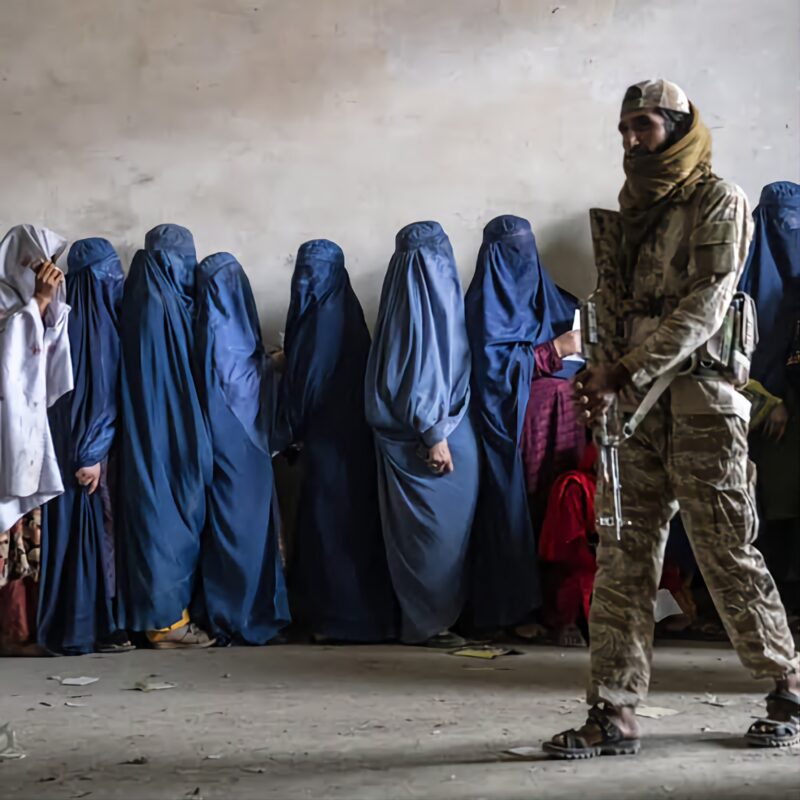Taliban Imposes New Restrictions, Banning Afghan Women from Reciting the Quran Aloud in Each Other’s Presence, Deepening Global Concerns Over Women’s Rights in Afghanistan
The Taliban has imposed a new restriction on Afghan women, barring them from reciting Quranic verses or praying aloud in each other’s presence. This decree, announced by the Ministry for the Propagation of Virtue and the Prevention of Vice, marks yet another blow to the rights of women and girls under the hardline regime.
New Morality Laws Deepen Restrictions
The latest rule follows a series of oppressive “virtue” laws issued in August, detailed in a 114-page document dictating aspects of public life. Among the mandates: women must fully veil in public, including their faces, and are prohibited from singing, reciting, or reading aloud, as a woman’s voice is deemed “intimate.”
Women are already excluded from education beyond sixth grade, most workplaces, and public spaces. They are forbidden from looking at men they are not related to and must have a male guardian for travel.
Speaking at a gathering in Logar province, Vice and Virtue Minister Khalid Hanafi stated,
“It is prohibited for a grown woman to recite Quranic verses or perform recitations in front of another grown woman. Even chants of takbir (Allahu Akbar) or utterances like ‘subhanallah’ are not allowed.”
The law also bans women from performing the call to prayer or praying aloud when another woman is nearby. Some activists fear this may lead to further isolation, effectively barring women from conversing with one another.
A Growing Humanitarian Crisis
The crackdown on women’s freedoms has had devastating effects on Afghan families. In 2022, women were banned from working with non-governmental organizations (NGOs), plunging many into poverty.
One Afghan woman shared her struggles with Global News:
“I am the breadwinner of my family. My father is sick, and we don’t have anything in our kitchen. I don’t know how I can continue my life.”
Enforcement of Sharia Law Escalates
The Taliban’s morality laws extend beyond women. Drivers are instructed not to transport women without male guardians and must perform prayers at designated times. Music is banned, and men are prohibited from shaving their beards or skipping religious practices.
Media outlets in Afghanistan must also comply with Sharia law, banning the publication of images depicting living beings.
International Backlash and Fear for the Future
A UN report released in July criticized the Taliban for fostering fear and intimidation. Fiona Frazer, head of the human rights service at the UN mission in Afghanistan, expressed concern, stating,
“The increasing oversight and enforcement by de facto authorities give cause for significant concern for all Afghans, especially women and girls.”
The Taliban has dismissed these findings, continuing to push forward with its restrictive agenda.
As the world watches, Afghan women face an increasingly bleak future under a regime determined to erase their voices—literally and metaphorically.










Join our Channel...